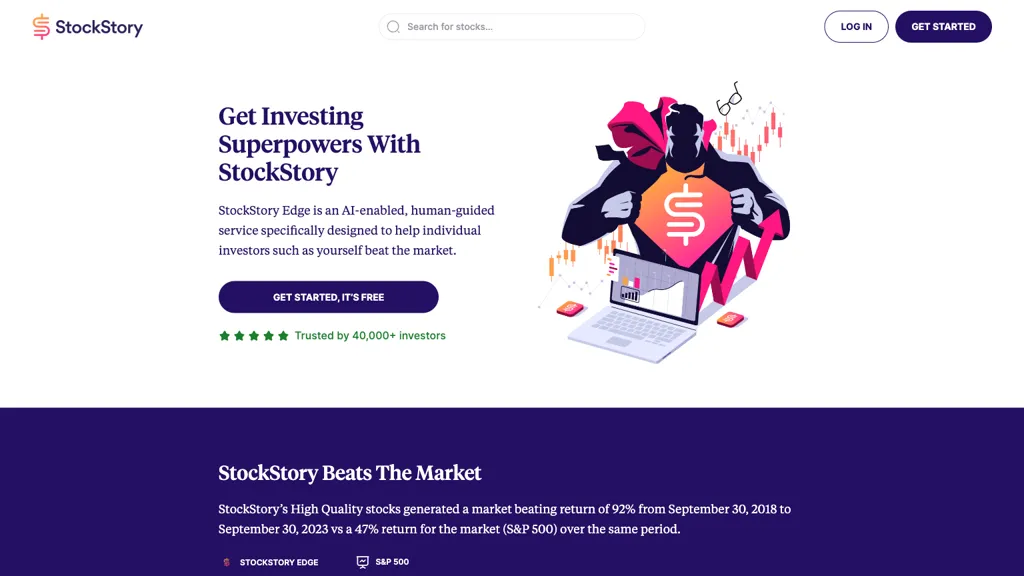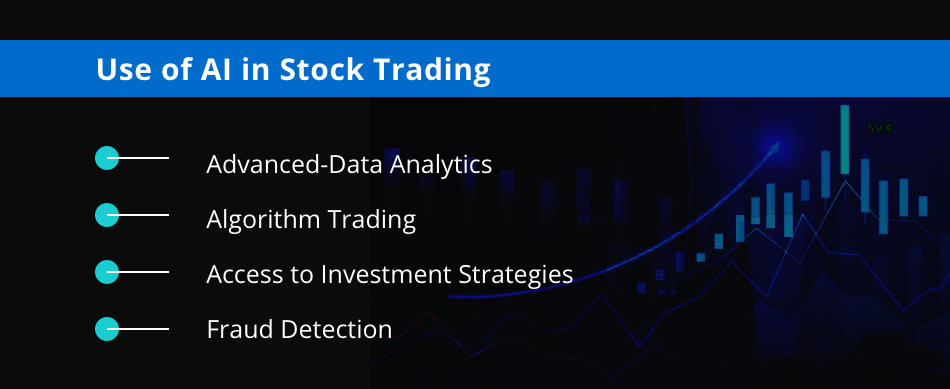To ensure you obtain the most value for your money it is essential to evaluate and price AI stock predicting/analyzing platforms. Pricing structures can vary greatly, and knowing the price you're paying is crucial to making an informed choice. Here are the top 10 tips for evaluating the price and costs of these platforms:
1. Understanding Pricing Model
Subscription-based: Find out whether the platform charges either a monthly or an annual fee and what features are available in each tier.
Pay-per-use : Make sure that the platform charges you according to usage (e.g. trades, requests for information or forecasts).
Freemium model: Determine whether the platform provides the free version with limited features and charges for premium features.
2. Compare Pricing Levels
Check out the features included in each pricing stage.
Scalability: Make sure the pricing tiers you choose are in line to your needs.
Upgrade flexibility: See if it is possible to upgrade or downgrade your plan as you change your requirements.
3. Evaluate Hidden Costs
Data fees: Check whether there are additional fees for premium data (e.g. live data, or advanced analytics).
Brokerage fees - Check to find out if additional costs are charged by the platform to trade execution or for integration with brokers.
API usage - Assess whether there are additional costs associated with API access or high-frequency use.
4. Demos as well as Trials are Available for Free
Trial period - Search for websites that offer the option of a trial or demo so you can check out the features before deciding to make a decision to commit.
Trial limitations: Determine if the free trial includes all of the features, or if it is restricted in terms of functionality.
Optional with no commitment: You should be able to cancel your trial at no costs if you discover that the software does not meet your requirements.
5. Find the most recent discounts and special offers
Discounts on annual subscriptions The monthly plan is compared with the annual plan.
Referral programs: Check whether you can earn credits or discounts by referring others to the platform.
Bulk or Institutional Pricing If your company is a large one, you may want to ask about bulk and institutional pricing.
6. Assess the Return on Investment (ROI)
Cost vs. Value: Determine whether the features and predictions of the platform are worth the cost. It can save you money or make better trading decisions.
Performance track record - Check the platform's performance rates or user feedback to determine its potential ROI.
Alternative costs: comparing the cost of the platform to the costs that might be incurred if it's not utilized (e.g. lost opportunities, manual analysis of data time).
Review Cancellation Policy Revision
Conditions for cancellation: Make sure that you have the option to cancel your subscription without penalties or hidden charges.
Refund Policy: Check that your service allows the amount back if the subscriptions is not utilized.
Auto-renewal. Verify if the platform will automatically renew your subscription. If it does you'll need to find out how to stop it.
8. Transparency in Pricing:
Clear pricing: Make sure that the price of your platform is clear and includes no hidden costs.
Customer Support: Contact customer service for clarification on any pricing information that is unclear or extra charges.
Contract terms: Make sure you understand the service terms and any penalties.
9. Compare with Competitors
Comparison of features: Ensure you're getting the best value and the best platform when comparing it against its rivals.
User reviews: Check out feedback from the users about the platform, and decide if it's worth the money.
Check the market positioning of the platform. Does it meet your needs?
10. Assess the long-term costs
Price increases: Find out if and how often the platform increases its prices.
Additions to your plan Decide if you're in need of an upgrade, or if the latest features are in your plan.
Scalability costs - Make sure that the price of the platform remains reasonable even as your data or trading requirements increase.
Bonus Tips:
Trials for free on multiple platforms are available to try and compare the advantages and performance of various platforms.
Negotiate the cost: If you are frequent users or part of a large organization Ask about discounts or special pricing.
There are numerous platforms offering educational resources and tools for no cost.
By following these tips You can easily evaluate the cost and pricing of AI platform for predicting and analyzing stocks make sure you select one that fits your budget and provides the features and performance you need. A high-quality trading platform can find the perfect equilibrium between affordability and features which will help you achieve the best results. See the top link on ai stock picker for more recommendations including ai investing platform, ai for stock predictions, using ai to trade stocks, using ai to trade stocks, ai stock market, best ai stock trading bot free, ai stocks, ai trading, ai trading tools, ai chart analysis and more.

Top 10 Tips To Assess The Regulatory Compliance Of Ai Stock Predictive/Analytical Platforms
Compliance with regulatory requirements is an essential aspect to consider when looking at AI platform for analyzing and predicting stocks. Compliance is essential since it ensures that the platform adheres to rules and legal frameworks. Also, it protects user's data. Here are top 10 tips for evaluating the conformity of these platforms.
1. Verify License and Registration
Regulators: Check that the platform has been licensed and registered with the relevant financial regulatory agencies (e.g. SEC in U.S.A., FCA UK, ASIC Australia).
Broker partnership: If the platform incorporates brokers, make sure that brokers are legally licensed and regulated.
Public records: Go to the regulator's site to find out whether the platform is registered or if it has ever violated the law.
2. Assessment of the Data Privacy Compliance
GDPR: When operating in the EU or offering services to EU users, the platform should comply with the General Data Protection Regulation.
CCPA -- California Consumer Privacy Act: Verify compliance for California users.
Data handling Policies: Read the policy of the platform on privacy of data to ensure that it clearly outlines what data users' information is collected, stored and shared.
3. Evaluation of Anti-Money-Laundering Measures
AML policies: Ensure the platform is equipped with strong AML policies that are in place to stop and identify money laundering activities.
KYC procedures - Check that the platform follows Know Your Customer procedures for authenticating user identities.
Monitoring transactions Check if your platform is monitoring all transactions for suspicious activities and informs authorities.
4. Verify compliance with Trading Regulations
Market manipulation: Make sure that the platform has measures in place to stop market manipulation, including fake trading or wash trading.
Order types. Verify that the platform is in compliance with all regulations regarding order type (e.g. there's no illegal stop loss hunting).
The best execution: Ensure that the platform follows the best execution practices. This will ensure that trades are carried out at the most competitive price.
5. Cybersecurity compliance assessment
Data encryption: Ensure the platform is encrypted to safeguard user data in transit and in rest.
Response to incidents. Verify whether the platform is equipped with a plan of action to handle data breaches and cyberattacks.
Make sure to check for any certifications.
6. Transparency and Disclosure
Fee disclosure: Verify that the platform discloses clearly all fees, additional charges or hidden charges.
Risk disclosure: Make sure the platform has clear risks and disclosures. This is especially important for trading strategies with high leverage or risks.
Performance reporting: Ensure the platform provides transparent and exact performance information for its AI model.
7. Make sure you're in compliance with International Regulations
Trading cross-border If you plan to conduct international trade, ensure that the platform complies in all jurisdictions.
Tax reporting: Verify if there are tools or reports available to help you comply with the tax regulations.
Conformity with international sanctions: Ensure that your platform is in strict compliance with these and doesn't allow trading between countries or entities that are banned.
8. Examine Records-keeping and Audit Trails
Transaction records: Ensure that the platform has detailed records for regulatory purposes and audit.
Records of activity by users: Determine whether the platform tracks user activity including logins or trades as well as changes in account settings.
Audit-readiness: Find out if the platform is able to produce all required documentation and logs needed for a possible regulatory audit.
9. Examine Compliance with AI-specific Regulations
Algorithmic Trading Rules If your platform allows trading using algorithms, ensure that it is compliant with the rules such as MiFID II (in Europe) or Reg SCI (in the U.S.).
Fairness and bias: Determine whether the platform is able to monitor and reduces biases in its AI models to ensure fair and ethical trading.
Explainability - Ensure that the system can clearly and concisely explain regarding AI-driven decisions, predictions, etc. in accordance with certain rules.
10. Review feedback from users and the history of regulatory compliance
User reviews: Conduct research to assess the platform's reputation regarding the regulatory compliance.
Historical Record: Search for any past violations of regulations and penalties, fines or sanctions.
Third-party audits: Verify that the platform has regular audits by third parties to ensure compliance with regulations.
Bonus Tips
Legal consultation: Talk to an expert in the field to check if your platform is in compliance with regulations.
Trial period. Use the free trial or demo version of the platform to test its compliance features.
Customer support: Make sure the platform has support available in case of questions or problems that concern compliance.
These tips will help you evaluate the regulatory compliance for AI trading platforms that predict and analyze stocks. You will be able pick a system that is in compliance with legal frameworks while protecting your rights. Compliance is crucial as it does not just reduce legal risks, it also increases trust and confidence in the platform. Take a look at the most popular https://www.inciteai.com/advisors for blog advice including can ai predict stock market, can ai predict stock market, best ai penny stocks, best ai stock prediction, stocks ai, best ai penny stocks, best ai stocks to buy now, ai software stocks, how to use ai for copyright trading, ai options trading and more.
